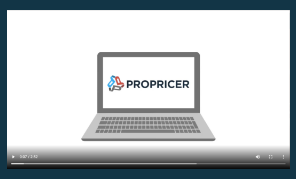Talk about a disruptive pivot: government agencies transitioned from a hierarchical to a team-based management approach in the late 1990s. While many contracting firms—especially technology vendors—have always been team-oriented, the shift in government agencies was and still is jarring for many civil pricing servants.
Offices became team rooms. Managers were suddenly leaders. And delegation morphed into collaboration. All virtually overnight.
During this transition, it became clear that employees at all government levels needed training on interpersonal skills, such as neutral communication techniques and emotional intelligence.
Most agencies are still easing into this brave new world of work, 20-plus years later.
In 2017, the Office of Personnel Management (OPM) identified the average age of federal government employees as 47.5 years, with more than 45 percent of federal employees age 50 or above.
The current average retirement age in the federal government is 60 to 63. Consequently, a massive retirement wave is about to hit, and younger generations need to be prepared and motivated to take the reins.
How do you better acclimate those in the prime of their careers to step up to bigger leadership roles, and start grooming your promising junior people, today?
The best answer is objective coaching, which can help your people learn the “how” of effectively performing in today’s more collaborative agency and contractor environments. Think of the ways in which prospective leaders could have benefited decades ago, when working in teams became, overnight, the promised land for productivity.
Contracting companies are investing in leadership development and retraining for their employees at an unprecedented rate. Coaching can prove just as effective in the Federal Government.
To create a leadership workforce for the 21st Century, as outlined in the President’s Management Agenda, follow these simple steps: (3)
Coaching is the foundation. Strong yet empathetic leadership is the goal.
When used, coaching is largely introduced at the managerial level. It’s proven incredibly effective for succession planning—a coach can act as an advisor to a retiring manager in choosing their more junior people who show seismic potential for promotion, as a catalyst in designing succession plans, and as a mentor who can help shape those rising stars. Managers or objective mentors can also fill all of these roles themselves.
Coaching is incredibly personal, not to mention time-consuming. Training managers on how to finesse interactions with their employees—or how to help employees collaborate with each other—is much different than teaching statistics to a data analyst. It requires a tailored approach for each person involved.
Luckily, coaching has become an internationally accepted training method. In 2008, The American Management Association released their report Coaching: A Global Study of Successful Practices, and established several findings—among them these three:
- Matching mentors and mentees with similar personality traits lead to the most optimistic successions.
- Evaluating the states of mentees before and after determines coaching effectiveness.
- Externally based methods of coaching work best. (3)
That said, many agencies and startup contractors who can’t yet afford to hire external coaches pair willing mentors with those who show promise—typically from different but related departments—or allow more junior employees to approach more experienced people they respect on their own.
Choosing your future leadership
Most government coaching departments and outside consultants recommend an assessment or diagnostic of your agency’s future-leader population—and can usually help you choose leadership nominees if you’re stuck.
OPM offers its Leadership Potential Assessment (LPA) tool to help you do just that. The LPA is a multi-source feedback tool that gathers information about leader candidates from their supervisors, peers, subordinates, and customers on two key areas that are crucial for leadership success:
- Ability
- Motivational factors
Ability is assessed on competencies most important to success at the leadership level immediately above the participant’s current position. These vary by focus area and position.
The LPA also evaluates potential leaders on five motivational factors critical to leadership success.
These are:
- Commitment to the agency.
- Enthusiasm for the work.
- Motivation to lead others.
- Desire for more responsibility.
- Confidence in being a leader.
OPM administers the assessment online, and each participant receives a confidential feedback report. If you like, feedback briefings can guide you and your people through the assessment process and results together. (1)
Core areas for leader development
When preparing a future leader for tomorrow, here are the critical capabilities to focus on:
- Be human. Interpersonal skills, diplomacy, written and oral communication, integrity, passion for continuous learning, and motivation for public service.
- Lead change. Creativity and innovation, cross-industry and government awareness, flexibility, resilience, strategic thinking, and vision.
- Coach people. Conflict management, initiating and leveraging diversity, developing others, and building teams.
- Drive results. Accountability, customer service, decisiveness, entrepreneurship, problem-solving, and technical credibility.
- Know business. Financial management, Human Capital Management, and technology management.
- Build alliances. Partnering, political savvy, influencing, and negotiation. (1)
Design a learning organization
Some of the best ways to lay a strong foundation for future leaders—and everyone else—is to develop your agency with a substantial capacity for learning in mind:
- Learn and use systems thinking, the realization that system parts act and react differently on their own than when integrated; and mental models, visibility and appreciation of an employee’s surrounding world and that employee’s intuitive perception of his or her own acts and their consequences.
- Develop the five essentials for a successful firm or agency: speed, agility, responsiveness, ability to meet new levels of customer expectations, and personal flexibility. (2)
The GCP Summit offers learning meetups and potential mentors
The annual Government Contract Pricing (GCP) Summit is a unique opportunity for you and your people to meet others in the federal or industry sectors, grow professionally through hands-on learning sessions and help shape the future of public-private partnerships in the U.S.
It’s also an excellent way to find a mentor in a particular vertical industry or government sector. This year’s summit is from June 29th to July 1st, and you can register here. You’ll earn Continued Learning Points with every session you attend.
Pro tip: You can also earn Learning Points by watching insightful ProPricer on-demand webinars, such as “Communication Between the Technical and Pricing Teams” and “The Strategic Side of Rates.” Find more valuable, on-demand webinars here.
SaaS-based technology training. Essential for tomorrow’s leaders
Give your mentees another competitive advantage by enrolling them in ProPricer proposal software training. They can learn whenever, wherever, and however they want—even through their mobile devices.
ProPricer training enables anyone to learn the software, but also to more effectively listen to and act on feedback, stay up to date on best practices, and hone skillsets.
Training Courses
Emphasizing either ProPricer Contractor Edition or ProPricer Government Edition, courses are available in regional locations throughout the United States or brought to your facility as an on-site program. Get notified on training by filling out the form here.
Online, Self-Paced Training
ProPricer's learning management system deepens your product knowledge and enables you to understand how to set up and drive action from the platform. Get notified on training by filling out the form here.
Training Events
Join us for timely virtual and in-person events where we'll open your aperture to effective proposal pricing techniques and help you network with other professionals. Get notified of events by filling out the form here.
Practical Skills Day
Practical Skills Day is a great way to bring new ProPricer users up to speed and refresh the skill levels of experienced users. To save time and resources, let ProPricer train your entire staff. Register here.
Nominate your leadership candidates: Future of Pricing awards
Launched this year, Pricing Magazine’s Future of Pricing awards recognize the contributions of both contractor and agency professionals in two distinct categories: “Pricing Leader,” for more experienced professionals; and “Up and Comer,” for those relatively new to the pricing game.
Five winners in each category will be featured in the next issue of Pricing Magazine. Nominate leadership candidates here. (4)
It’s never too early to start seeding your agency’s or contracting firm’s future. A balanced mix of assessment, coaching, continuous training, and networking will help ensure that tomorrow’s stars are on the rise.
Sources
- OPM.GOV website
- eBook: The Leadership Journey: Programs and Seminars of the Federal Executive Institute and Management Development Centers
- Management Concepts Blog: Leadership Coaching in the Federal Government
- ProPricerwebsite: Contractor and Agency Training




